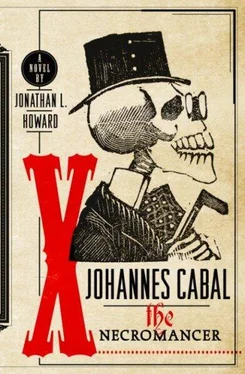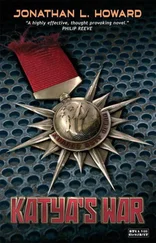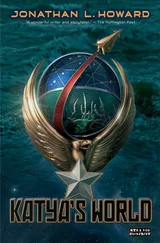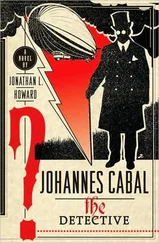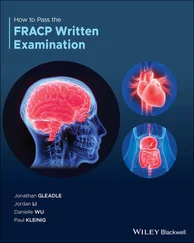The soldier watched uncomprehendingly. “What’re you doing?”
“Have you read any of the Sherlock Holmes stories?” answered Cabal.
“No. I’ve heard of them, though. Who hasn’t?”
“That’s a shame. When I was young and still read fiction, I read the whole canon. I liked the application of the scientific method to resolving the chaos that crime generates.” Cabal stepped to the window where he’d been standing when the soldier had first spoken to him, looked over his shoulder, turned, and took a long step.
“This,” he said, “is where you were standing when you asked me for a light, yes?”
“I think so. Why’s it important?”
“You should know. It’s also where you were standing when you saw the children on the track, isn’t it?”
“I don’t know. Why do you ask?”
“Apart from the Holmes stories, Arthur Conan Doyle also wrote tales of horror and the bizarre.” Cabal looked at the soldier. “Some ghost stories, too. Would you like me to tell you a ghost story?”
“I don’t believe in ghosts,” said the soldier, but he said it like a poor liar.
“You should. I do. But, then, I’ve seen them. Let me tell you about the three types I’ve come across.” The soldier said nothing, but his discomfort was obvious. Cabal came over and sat down.
“Firstly,” said Cabal, “there are the ghosts that aren’t ghosts at all. Just recordings of dramatic, usually traumatic events. The murder on the staircase, the garret suicide, vicious battles fought out over and over again on bleak moors to terrify the shepherds. That sort of thing. People don’t like dying as a rule. All that fear and anxiety, hatred and passion burns their last acts into” — he waved his hands to encompass the air about them — “the ether, for want of a better word. But those aren’t real ghosts any more than a photograph of a dead man is.
“The second type isn’t really a ghost, either, but at least it has pretensions. I’m talking about how a particularly powerful personality can distort things around the place of its death, or even just where it spent most of its life. These are the kind of ghosts who give the ghost-hunters employment, because, more often than not, they’re created by aberrant personalities. That means aberrant effects after death: blood running down walls, screaming skulls, the living being given helpful shoves out of windows. All the sort of things the yellow press gets excited about. But the ghost isn’t an entity. It’s more like a series of practical jokes left behind by a wilful man or woman. It may give the impression of intelligence, but you can’t reason with it. It has no reason.” Cabal rubbed ruminatively at his shoulder blade and remembered a provincial theatre that gossip held to be haunted. He’d been lucky to get away with only a fractured scapula.
“And that leaves us with the third type, and the only type that I really think of as a true ghost. The lost soul who doesn’t know that it’s dead yet. Not common, not common at all. In fact, I’ve only ever met one.” He put his elbows on the tabletop, interlaced his fingers, steepled his index fingers, rested his upper lip on their tips, and looked directly at the soldier.
“Who?” asked the soldier cautiously. Cabal’s face darkened.
“The sheer obtuseness of the dead never fails to stagger me. You’d think I’d be used to it by now.” He slapped his hands on the tabletop. The slight breeze stirred the cigar ash in the ashtray. The cigarette ash remained entirely still. Cabal rose quickly and walked in impatient strides to the spot where he’d first seen the soldier standing. He stood with his back to the soldier and pointed at the floor to his left.
“Bloodstains, long spray pattern running from there to there. Over on the far wall” — he pointed — “there’s a pockmark in the wood. It’s a bullet hole. The slug has long since been extracted, but I’d make an educated guess that it was a revolver round, probably a thirty-eight. I notice you’re right-handed, so I assume you were looking out of the window at the time. Heaven knows there’s nothing very interesting within the body of the room, so that would seem to make sense.”
“No,” whispered the soldier, “please.”
“Don’t ‘No, please’ me,” barked Cabal over his shoulder. “I was under the impression that non-commissioned officers weren’t issued with sidearms. Bring it back from the trenches, did you? Given the slaughter, you can’t have been short of dead officers to loot a revolver from, hmm?”
“I don’t know what you’re talking about. You’re mad,” said the soldier, but his words were only meant to soothe himself.
“Mad, is it?” Cabal looked out of the window. “You said you were given leave. Compassionate leave, I assume. You came back here to a station that wasn’t used anymore, made them stop the train, came in here.” Cabal put his right index and middle fingers to his right temple. “Bang! Blew your brains out.” He turned. The soldier looked at him in shrinking horror.
Cabal pointed at the stained floor and said gently, “That’s your blood, isn’t it? And that hole in the wall is where the bullet came to a stop after it had gone clear through your head.” He walked back to the table and sat down. The soldier had buried his face in his hands and was breathing in sobs.
“You’ve always known it, of course. It’s just been a problem accepting it,” Cabal said. “The children didn’t run from your uniform. They ran from the ghost at the haunted station. And they didn’t feel they were in danger on the track because that line hasn’t been used as anything but a siding in many years. I’m sorry. You’re a lost soul. That’s all there is to it.” He watched the sobs wracking the corporal’s shoulders for a few moments. “The only thing left to you now is to be freed.”
“The captain, the captain kept trying to say what had happened,” cried the soldier, sounding very young. “He kept saying it, and I couldn’t take it in. I sort of got a bit of it and thought it was a joke. I was laughing at him while he told me they were all dead. My family. Just gone. And Katy. And Katy.” He looked up at Cabal with eyes red-rimmed with misery. “She was my lass. We’d been courting since school. We were going to get married in the new year when the War was over and I got demobbed.”
“I know. I know,” said Cabal quietly. All dead simultaneously, he thought. Odd. “You must have loved her very much.”
“She was … Katy. There was no life without her. I just … just couldn’t go on. You can’t imagine what it’s like.”
Cabal coughed. “You might be surprised. Do you want to leave here?” The soldier looked at Cabal blankly. “I can free you. I’ve had some experience with life after death. Do you want to leave here?”
“I keep falling asleep. Every time I wake up, I can just remember another screaming face in my dreams. I don’t think I can stand it much longer.”
“Then, if you just fill in this form, I can get you on your way.”
The soldier looked at him, dazed. “A form? I have to fill in a form?”
“Just a technicality. A signature is all that’s needed.” He was checking his inside pockets without success. Belatedly he remembered that he’d used the last form he’d taken from the box just before leaving Solipsis Supermare. “Ah. I don’t appear to have one on me. If you can bear with me for ten minutes while I get one from — ”
“Will Katy be there?”
There was a hope in the young man’s eyes that made Cabal suddenly feel very old. He thought of the expanses outside Hell, and the toiling masses trying to come to grips with the notorious question one thousand and twelve of Form KEFU/56. Then he thought of what eternal damnation really means.
Читать дальше
